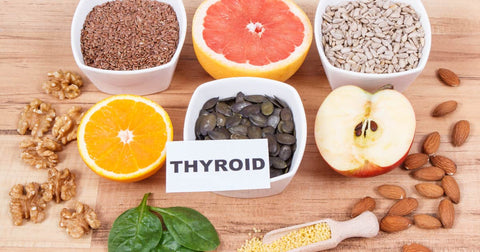Aging is a natural biological process characterized by the progressive decline in physiological functions and the increased susceptibility to various diseases and conditions. While aging is inevitable, its pace and severity can be influenced by several factors, including genetics, lifestyle, and environmental exposures.
As people age, they experience a myriad of changes at the cellular, tissue, and organ levels, leading to diminished function and increased vulnerability to age-related diseases such as cardiovascular disease, neurodegenerative disorders, and cancer.

The implications of aging extend beyond individual health, impacting societal structures and healthcare systems. With global populations experiencing a demographic shift towards older age groups, understanding and addressing the challenges associated with aging has become a pressing concern. Effective strategies to promote healthy aging not only enhance the quality of life for older adults but also alleviate the economic burden on healthcare systems.
In this article, we will explore the critical role of nutrition in slowing down the aging process. We will delve into the biological mechanisms underlying aging and examine how dietary factors influence these processes.
Understanding the Aging Process
The aging process is characterized by a myriad of biological changes that occur at the cellular, tissue, and systemic levels. At the cellular level, aging is marked by a decline in mitochondrial function, accumulation of cellular damage due to oxidative stress, and alterations in gene expression and protein synthesis.
These changes contribute to a gradual decline in cellular repair and regeneration capacity, leading to impaired tissue function and increased vulnerability to age-related diseases.
Factors Influencing the Aging Process
While aging is influenced by genetic factors, lifestyle choices, and environmental exposures play a significant role in shaping the trajectory of aging. Poor dietary habits, sedentary lifestyle, chronic stress, and exposure to environmental toxins can accelerate the aging process by exacerbating oxidative stress, inflammation, and cellular damage.
Conversely, adopting a healthy lifestyle characterized by regular physical activity, stress management, and a balanced diet can mitigate the adverse effects of aging and promote optimal health and longevity.
Nutrients Essential for Slowing Down Aging
Antioxidants and Their Role in Combating Oxidative Stress

Antioxidants are compounds that help neutralize free radicals, unstable molecules that can cause cellular damage and contribute to the aging process. Common antioxidants include vitamins C and E, beta-carotene, selenium, and flavonoids found in fruits, vegetables, nuts, and seeds.
These compounds work by donating electrons to free radicals, thereby stabilizing them and preventing them from causing harm to cells. Research has shown that diets rich in antioxidants can help reduce oxidative stress, lower inflammation, and protect against age-related diseases such as cardiovascular disease and cognitive decline.
Omega-3 Fatty Acids and Their Impact on Cellular Health
Omega-3 fatty acids, particularly eicosapentaenoic acid (EPA) and docosahexaenoic acid (DHA), are essential fats found in fatty fish, flaxseeds, chia seeds, and walnuts. These fatty acids play a crucial role in maintaining cell membrane integrity, regulating inflammation, and supporting brain health.
Studies have suggested that omega-3 fatty acids may help slow down the aging process by reducing the risk of chronic diseases such as heart disease, arthritis, and cognitive decline. Incorporating omega-3-rich foods into your diet or taking supplements can help support cellular health and promote healthy aging.
Micronutrients Vital for Cellular Repair and Regeneration
Micronutrients, including vitamins and minerals, are essential for various cellular processes involved in repair, regeneration, and maintenance of tissues throughout the body. Key micronutrients important for healthy aging include vitamin D, vitamin B12, calcium, magnesium, and zinc.
Vitamin D, for example, plays a critical role in bone health, immune function, and mood regulation, while vitamin B12 is essential for nerve function and red blood cell production. Calcium and magnesium are necessary for bone density and muscle function, while zinc supports immune function and wound healing.
Ensuring adequate intake of these micronutrients through a balanced diet or supplementation can support optimal cellular function and promote healthy aging.
The Role of Diet Patterns in Aging
Mediterranean Diet and Its Anti-Aging Effects

The Mediterranean diet is a plant-based eating pattern inspired by the traditional dietary habits of countries bordering the Mediterranean Sea. It emphasizes whole grains, fruits, vegetables, legumes, nuts, seeds, olive oil, and fish, while limiting red meat, processed foods, and refined sugars.
Research has shown that adherence to the Mediterranean diet is associated with numerous health benefits, including reduced risk of heart disease, stroke, type 2 diabetes, and cognitive decline.
The anti-aging effects of the Mediterranean diet are attributed to its high content of antioxidants, omega-3 fatty acids, fiber, and phytochemicals, which help combat inflammation, oxidative stress, and age-related diseases.
Plant-Based Diets and Longevity
Plant-based diets, such as vegetarian and vegan diets, focus on whole plant foods such as fruits, vegetables, grains, legumes, nuts, and seeds, while minimizing or excluding animal products.
These diets are rich in fiber, antioxidants, vitamins, and minerals and have been linked to lower rates of chronic diseases and increased longevity. Research suggests that plant-based diets may help slow down the aging process by reducing inflammation, oxidative stress, and risk factors for age-related diseases such as obesity, hypertension, and dyslipidemia. Incorporating more plant-based foods into your diet can support healthy aging and promote overall well-being.
Importance of Balanced Nutrition for Optimal Aging Outcomes
While specific nutrients and dietary patterns play essential roles in slowing down the aging process, achieving optimal aging outcomes requires a balanced and varied diet that provides all essential nutrients in adequate amounts.
In addition to antioxidants, omega-3 fatty acids, and micronutrients, it's essential to consume a diverse range of nutrient-dense foods from all food groups, including fruits, vegetables, whole grains, lean proteins, and healthy fats.
Avoiding excessive intake of processed foods, refined sugars, and unhealthy fats is also important for maintaining optimal health and aging gracefully. By adopting a balanced and nutrient-rich diet, you can support cellular health, reduce the risk of age-related diseases, and enhance your overall quality of life as you age.
Lifestyle Factors Enhancing the Impact of Nutrition
Physical Activity and its Synergistic Effects with Nutrition

Regular physical activity is not only essential for maintaining overall health but also plays a significant role in enhancing the impact of nutrition on aging. When combined with a balanced diet, exercise becomes a powerful tool in slowing down the aging process. Aerobic exercise, strength training, and flexibility exercises all contribute to improving cardiovascular health, building muscle mass, and promoting overall well-being.
Research suggests that exercise stimulates the production of antioxidants in the body, complementing the anti-aging effects of a nutritious diet. Moreover, physical activity helps regulate blood sugar levels, reduce inflammation, and improve cognitive function, all of which are crucial for healthy aging.
Stress Management and its Influence on Aging
Chronic stress is known to accelerate the aging process by triggering inflammation, compromising immune function, and promoting the formation of harmful free radicals. Therefore, effective stress management is essential for slowing down the biological clock and promoting longevity.
Various techniques such as meditation, deep breathing exercises, yoga, and mindfulness practices have been shown to reduce stress levels and promote relaxation. Additionally, maintaining a healthy support network, setting realistic goals, and prioritizing self-care activities can help mitigate the negative effects of stress on the body.
Adequate Sleep and its Role in Cellular Repair and Regeneration
Quality sleep is fundamental for cellular repair, regeneration, and overall health. During sleep, the body undergoes essential processes such as protein synthesis, hormone regulation, and toxin removal, all of which are critical for maintaining youthful vitality.
Chronic sleep deprivation has been linked to accelerated aging, cognitive decline, and increased risk of chronic diseases. Therefore, prioritizing sleep hygiene is crucial for supporting anti-aging efforts.
To promote restorative sleep, it's important to maintain a consistent sleep schedule, create a relaxing bedtime routine, and ensure a comfortable sleep environment. Limiting exposure to screens before bedtime, avoiding stimulants like caffeine and nicotine, and engaging in relaxation techniques can also help improve sleep quality.
Practical Tips for Implementing Anti-Aging Nutrition Strategies
Creating a Balanced and Nutrient-Dense Meal Plan

Start by incorporating a variety of whole foods into your diet, including fruits, vegetables, whole grains, lean proteins, and healthy fats. Aim to fill your plate with a rainbow of colors, as different colored foods contain various vitamins, minerals, and antioxidants essential for combating aging.
Incorporating Superfoods and Anti-Aging Ingredients into Daily Meals
Integrate superfoods such as berries, leafy greens, nuts, seeds, and oily fish into your meals to maximize their anti-aging benefits. These nutrient-dense foods are rich in antioxidants, omega-3 fatty acids, and other bioactive compounds that support cellular health and longevity.
Strategies for Maintaining Healthy Eating Habits in the Long Term
Focus on making sustainable lifestyle changes rather than short-term fixes. Practice mindful eating, listen to your body's hunger and fullness cues, and avoid restrictive diets that are difficult to maintain. Experiment with new recipes, flavors, and cooking methods to keep meals exciting and enjoyable. Finally, seek support from friends, family, or a registered dietitian to stay motivated and accountable on your anti-aging nutrition journey.
Frequently Asked Questions
What are some key nutrients known for their anti-aging properties?
Antioxidants like vitamins C and E, along with beta-carotene, and selenium, play a crucial role in neutralizing harmful free radicals that contribute to aging. Omega-3 fatty acids found in fatty fish and flaxseeds also support cellular health and may slow down the aging process.
Can certain diets truly slow down the aging process?

Yes, research suggests that diets rich in fruits, vegetables, whole grains, lean proteins, and healthy fats, such as the Mediterranean diet and plant-based diets, may help slow down aging by providing essential nutrients, reducing inflammation, and supporting overall health and longevity.
How does physical activity contribute to anti-aging efforts?
Regular exercise not only helps maintain muscle mass and bone density but also supports cardiovascular health and promotes circulation. Additionally, exercise has been shown to reduce inflammation and oxidative stress, both of which are linked to accelerated aging processes.
Are there specific foods to avoid to prevent premature aging?
Processed foods high in refined sugars, unhealthy fats, and artificial additives can contribute to inflammation, oxidative stress, and cellular damage, hastening the aging process. Limiting intake of these foods and opting for whole, nutrient-dense options can help slow down aging.
How can I incorporate anti-aging nutrition into my daily life?
Start by prioritizing a balanced diet rich in fruits, vegetables, whole grains, lean proteins, and healthy fats. Include antioxidant-rich foods like berries, leafy greens, and nuts, and consider adding omega-3 fatty acids from sources like salmon or chia seeds. Planning meals ahead, cooking at home, and staying hydrated are also key steps in supporting anti-aging efforts through nutrition.
Conclusion
In conclusion, nutrition plays a fundamental role in slowing down the aging process and promoting overall well-being. By incorporating a balanced diet rich in antioxidants, omega-3 fatty acids, and essential nutrients, we can support our bodies in maintaining vitality and resilience as we age.
However, it's important to note that food intolerances can also accelerate the aging process, leading to inflammation and other adverse effects on health. Therefore, being mindful of individual dietary sensitivities and making informed choices about what we eat is crucial for achieving optimal aging outcomes. The at-home food intolerance test kit by Advance Food Intolerance Labs (AFIL) can help you identify all foods that your body is intolerant to and can accelerate the aging process.
Let's embrace the power of nutrition to nourish our bodies and live life to the fullest, with vitality and grace, at every stage of life.


.png?v=1737390083)
.png?v=1737187409)


